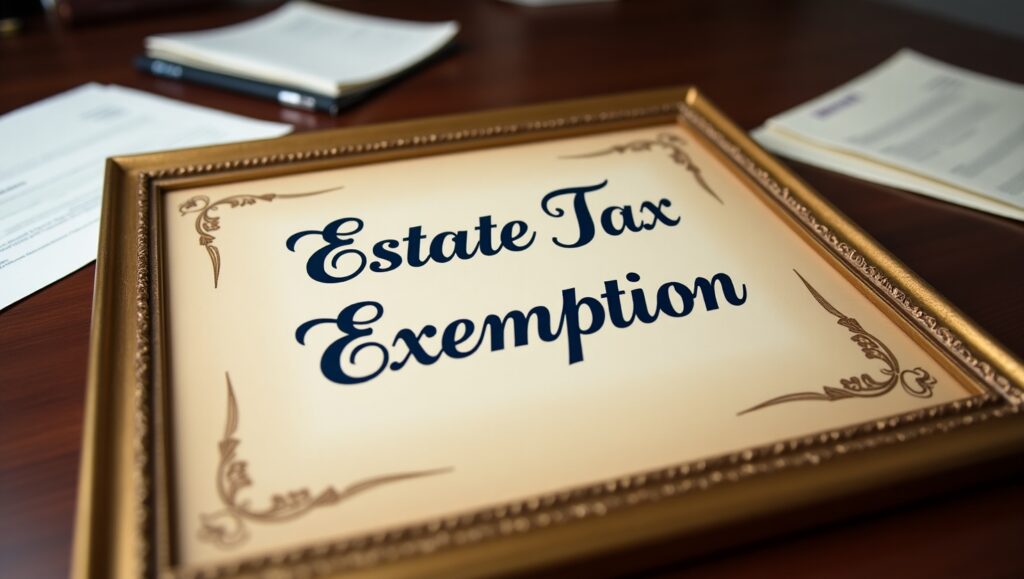
Introduction:
The estate tax exemption 2025 is a key consideration for anyone planning to pass on their wealth. Estate taxes are taxes on what you own when you pass away. The good news is, in 2025, the estate tax exemption will play a major role in how much of your estate may be taxed. This article will explain what the estate tax exemption 2025 means, how it works, and how it may change. Understanding this will help you make better decisions when planning for the future.
What is Estate Tax?
Before we dive into the details of the estate tax exemption 2025, it’s helpful to understand what estate taxes are. An estate tax is imposed on the assets you own when you die. The government collects taxes from the wealth you leave behind. These taxes can be high, with rates ranging from 18% to 40%.
Thankfully, there’s an exemption that allows a portion of your estate to pass to your heirs without taxes. The estate tax exemption means that you can leave a certain amount of wealth to your heirs without triggering taxes. This exemption varies based on the size of your estate.
The Estate Tax Exemption 2025: What’s Changing?
The estate tax exemption 2025 is expected to see a reduction. Currently, individuals can exempt over $12 million of their estate, and married couples can exempt more than $24 million. This means if your estate is below this threshold, you don’t pay estate taxes. However, in 2025, the exemption is likely to decrease.
Experts predict that the estate tax exemption 2025 will drop to around $6 million for an individual and $12 million for a married couple. If your estate exceeds this new exemption amount, it could be subject to taxes. This change could result in a larger tax bill for some estates.
Why Does the Estate Tax Exemption Matter?
The estate tax exemption 2025 is crucial because it directly affects how much of your estate will be taxed. If your estate exceeds the exemption limit, your heirs could face a significant tax bill. Understanding this rule will help you plan better for the future.
For example, let’s say you’re a single individual and your estate is worth $7 million in 2025. With the new $6 million exemption, your estate would be taxed on the $1 million over the exemption amount. At a 40% tax rate, this could result in a tax of $400,000. On the other hand, if your estate is worth $5 million, it falls below the exemption amount and is not taxed.
Estate Planning Strategies to Take Advantage of the Exemption
Since the estate tax exemption 2025 is likely to decrease, it’s important to start planning now to protect your wealth. There are several strategies that can help you reduce the amount of taxes your heirs will need to pay.
- Gifting During Your Lifetime: One strategy is to gift some of your wealth while you’re still alive. The IRS allows you to give away a certain amount of money each year without paying gift tax. In 2025, this annual gift tax exemption is expected to stay around $15,000 per person. By gifting portions of your estate while you are alive, you can reduce its size and potentially keep it under the exemption limit.
- Establishing Trusts: Another way to reduce your taxable estate is by setting up a trust. Trusts allow you to pass wealth to your heirs while keeping it out of your taxable estate. There are various types of trusts, such as irrevocable life insurance trusts (ILITs) and charitable remainder trusts (CRTs), each with its own rules. It’s a good idea to work with an estate planner to choose the best trust for your needs.
- Charitable Donations: If you want to leave a legacy to charity, you can donate a portion of your estate to a nonprofit organization. Charitable donations are typically exempt from estate taxes, so this can be a good way to reduce your taxable estate and help causes you care about.
The Role of Estate Executors and Lawyers in 2025
With changes to the estate tax exemption 2025, it’s important to work closely with an estate executor and an attorney. The estate executor is the person responsible for carrying out the instructions in your will and ensuring that your estate is distributed properly. The executor will also handle any necessary paperwork, including filing taxes.
Estate lawyers can guide you through the complex tax rules and help you plan your estate in the most tax-efficient way. As the rules for estate taxes are expected to change in 2025, having a lawyer to assist you is a wise decision.
Conclusion: Plan Ahead for 2025
The estate tax exemption 2025 is a crucial part of estate planning. The anticipated decrease in the exemption amount could have a significant impact on how much of your estate is taxed. To ensure your heirs receive the maximum benefit, start planning now.
Whether you use gifting strategies, trusts, or charitable donations, there are several ways to minimize the tax burden on your estate. Work with professionals to develop a plan that will protect your wealth, and make sure you’re fully prepared for the changes coming in 2025.


